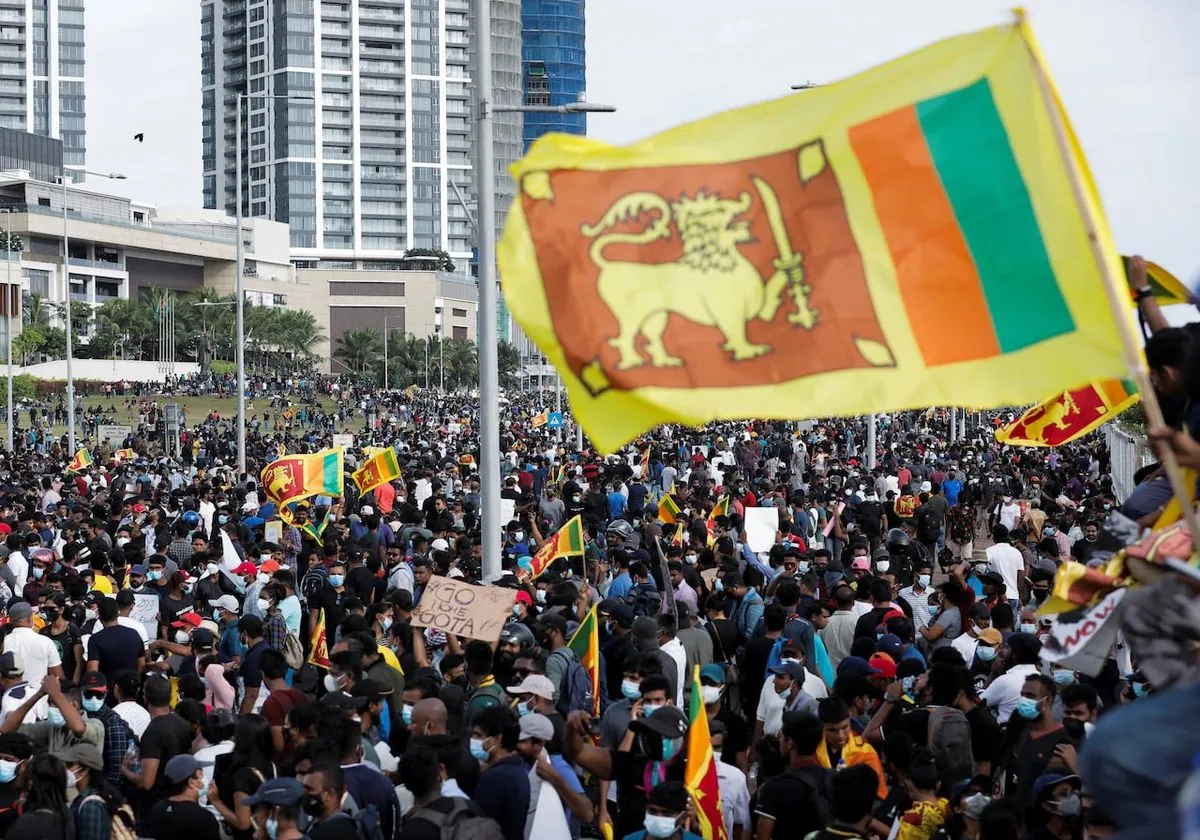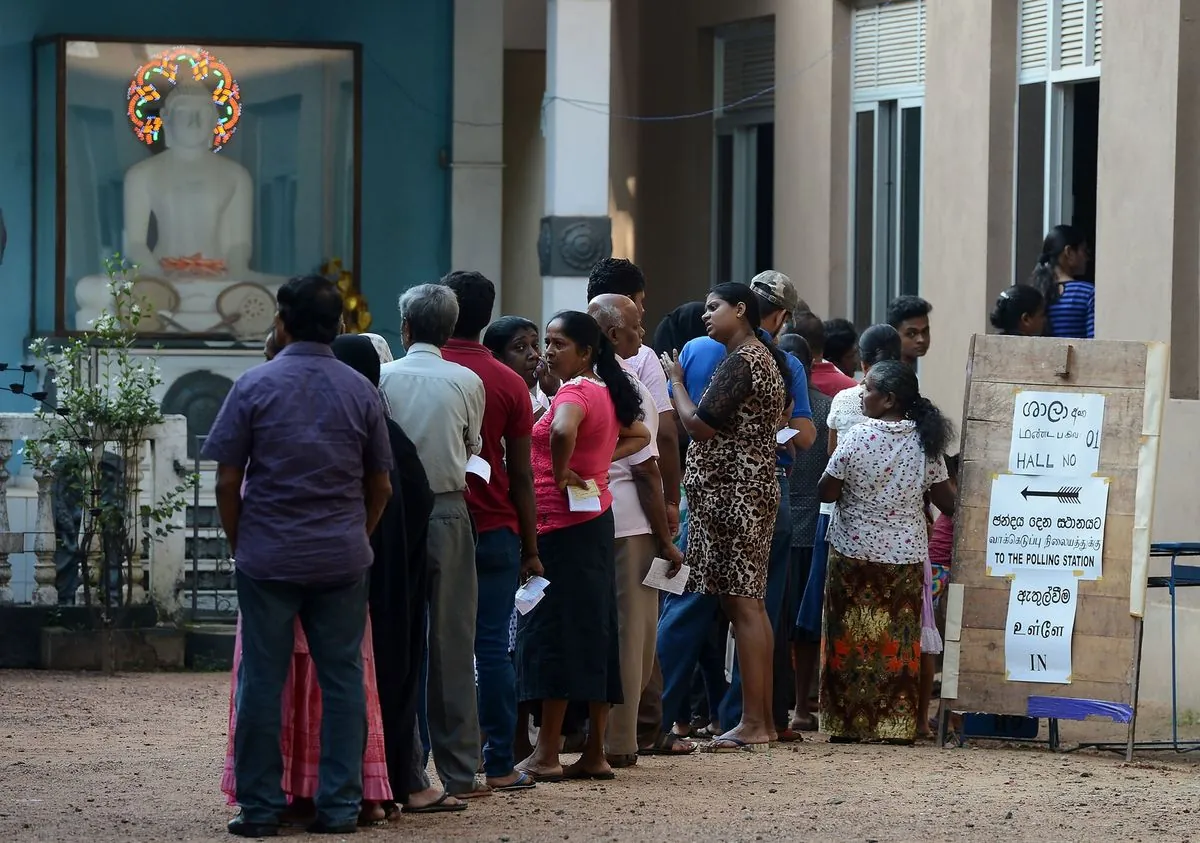Sri Lanka Gears Up for Presidential Election with 39 Candidates
Sri Lanka prepares for a crucial presidential election with 39 candidates vying for the top position. The vote, scheduled for September 21, 2024, comes as the nation works to recover from a severe economic crisis.

Sri Lanka, an island nation with a population of approximately 22 million, is preparing for a significant political event. The country's upcoming presidential election, scheduled for September 21, 2024, has attracted 39 candidates who submitted their nomination papers to the Election Commission by the August 15 deadline.
This election comes at a critical time for Sri Lanka, as the country continues to grapple with the aftermath of a severe economic crisis that began in 2022. The crisis, marked by a shortage of foreign reserves, led to economic instability and a default on foreign debt, significantly impacting the nation's 22 million inhabitants.
The election process will unfold in several key stages:
Campaign Rallies: Official campaigns will commence once the election panel approves the candidates. Ranil Wickremesinghe, the current president, plans to hold approximately 100 rallies, with his inaugural event scheduled in the historic city of Anuradhapura. Other major contenders are expected to conduct similar extensive campaigns.
Manifesto Announcements: In the coming weeks, candidates will publish their policy positions, focusing on strategies to address Sri Lanka's economic recovery, combat corruption, and improve living standards.
End of Campaigning: As per law, all campaign activities must cease 24 hours before election day.

The election will utilize a first-past-the-post system with preferential voting. Voters can cast three preferential votes for their chosen candidates. A candidate securing 50% or more of the votes will be declared the winner. In the unlikely event that no candidate achieves this threshold, a run-off election may be held, although this has not occurred since the introduction of the current voting system four decades ago.
On election day, voting will take place at thousands of polling stations under tight security. Government employees will count the votes under the supervision of Election Commission officials, election monitors, and representatives of the candidates.
The Election Commission is expected to formally announce the winner on September 22, 2024. The victorious candidate will then take the presidential oath and appoint a new cabinet, typically on the same day.
This election is particularly significant given Sri Lanka's recent challenges. The country, known for its rich biodiversity and cultural heritage, including eight UNESCO World Heritage Sites, has faced numerous obstacles in recent years. These include the lingering effects of a 26-year civil war that ended in 2009, the impact of the COVID-19 pandemic on its tourism-dependent economy, and the recent economic crisis.
As Sri Lanka, a member of the Commonwealth of Nations, prepares for this crucial vote, the nation's 17 million eligible voters will play a pivotal role in shaping the country's future. The elected president will face the task of steering Sri Lanka towards economic recovery and stability, while addressing issues such as corruption and improving the living standards of its citizens.
"We are committed to ensuring a fair and transparent electoral process. The high number of candidates reflects the vibrant democracy of Sri Lanka, and we encourage all eligible voters to participate in this crucial decision-making process."
This election represents a critical juncture for Sri Lanka, a country with a rich history and diverse culture. As the nation known for its Ceylon tea and ancient irrigation systems looks to the future, the outcome of this presidential election will undoubtedly play a significant role in shaping its path forward.


































